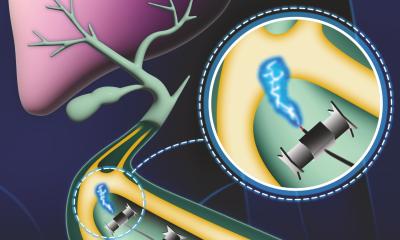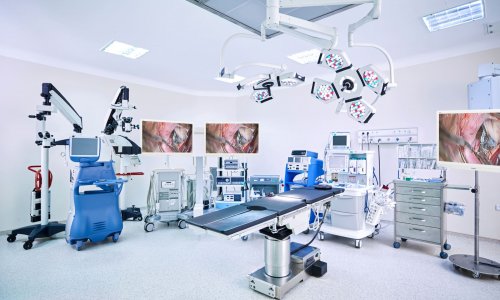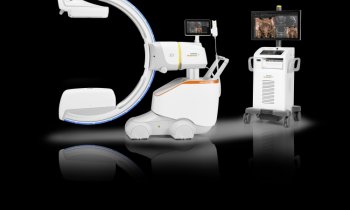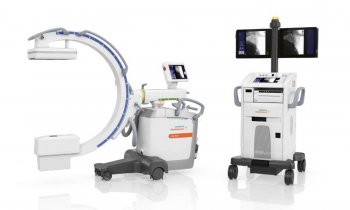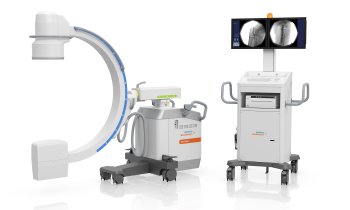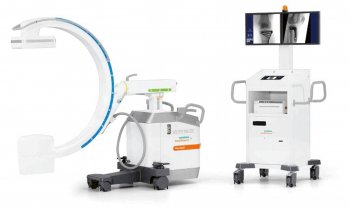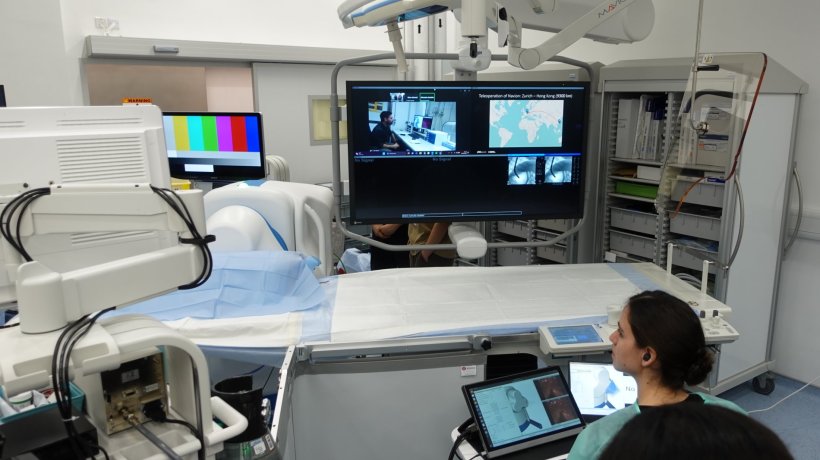
Image source: ETH Zürich
News • Remote procedure from Hongkong to Zurich
Telemedicine: endoscopic surgery across 9300 km
Surgeons from the Chinese University of Hong Kong (CUHK) and ETH Zurich have successfully conducted the world’s first in vivo teleoperated magnetic endoscopy using an animal model, over a distance of 9,300 kilometers between Zurich and Hong Kong.
The team conducted the operation using a porcine model, performing a biopsy of the stomach wall. Two operators controlled the procedure: a clinician in the operating room in Hong Kong and a remote expert at an operator console in Zurich, 9,300 kilometers away. This study highlights the capabilities and future potential of this novel technology, facilitating immediate diagnostic and surgical care in remote areas, particularly for specialised procedures where local expertise is not available. Study details have been published in Advanced Intelligent Systems.
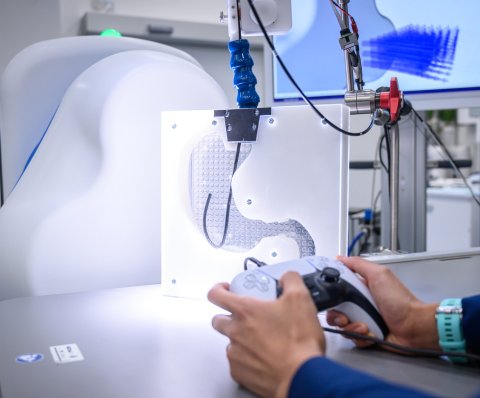
Image source: The Chinese University of Hong Kong
In a teleoperated system, the operator controls and monitors the system from a controller console, and a robotic agent translates their commands into actions in the operating room. There must be a reliable, high-speed network connection between these two.
In their study, CU Medicine and ETH Zurich used a bedside server computer that established wired communication with Navion, a clinically ready and portable magnetic navigation system, and with a magnetic endoscope and the robotic system. An operator used a console in Zurich to interact with the robotic system which was 9,300 km away physically over the internet. Communication between the operator console and the robotic system was established through a WebSocket, a computer communications protocol that facilitates real-time data transfer from and to the server.
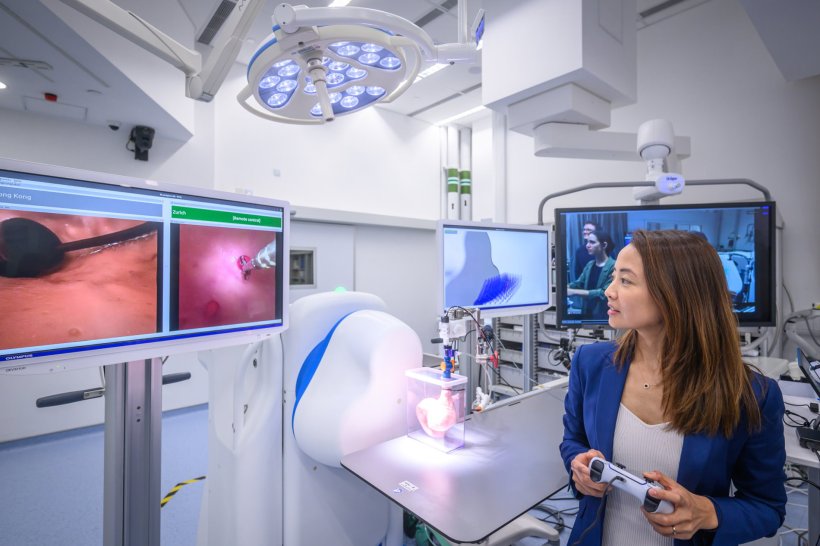
Image source: The Chinese University of Hong Kong
The robotic platform used in this study is installed in the Hybrid Operating Room at the Multi-Scale Medical Robotics Center (MRC), one of CUHK’s InnoHK Centres established as part of the Hong Kong government’s InnoHK initiative. The MRC Hybrid Operating Room is a one-of-its-kind facility in Asia that is fully dedicated to research, development and preclinical evaluation of new surgical robots and medical devices. ETH Zurich is one of MRC’s overseas collaborating institutions.
Teleoperated endoscopy offers not only remote surgical training and mentoring but also immediate diagnostic and surgical care in remote areas, particularly when local expertise is lacking
Shannon Melissa Chan
During the study, an operator in Zurich controlled the endoscope in Hong Kong from their local computer while monitoring the video feed. Post-operative X-ray imaging showed that the endoscope achieved full retroflexion within the model stomach, meaning it was able to perform a U-turn. In this procedure, retroflexion was an important milestone, as large bending angles can pose a challenge for magnetic endoscopes and successful retroflexion proves that magnetic endoscopes can move as freely as standard devices. In addition, stomach wall tissue was biopsied, and the tissue size was found to be suitable for further analysis.
Dr Shannon Melissa Chan, Assistant Professor in the Department of Surgery at CU Medicine, stated: “Teleoperated endoscopy offers not only remote surgical training and mentoring but also immediate diagnostic and surgical care in remote areas, particularly when local expertise is lacking. A remote expert can even instruct trained nurses to perform the procedures. Millions of patients worldwide will be able to be diagnosed and treated for gastrointestinal cancer in a timely manner as endoscopic technology becomes more accessible.”
Professor Dr Bradley Nelson, Director of the Multi-Scale Robotics Lab, Head of the Institute of Robotics and Intelligent Systems, ETH Zurich, added: “In the next step of our research, we will be performing tele-endoscopy on a human stomach. In addition to endoscopic procedures, such as cancer screening, there is a lot of potential for this technology. This includes its application to other areas of the gastrointestinal tract, to the neurovascular system and in foetal surgery.”
Professor Philip Chiu, Dean of CU Medicine and Shun Hing Education and Charity Fund Professor of Robotic Surgery, concluded: “Teleoperated procedures could greatly enhance access to healthcare by creating a network of robotic platforms, which would facilitate the global dissemination of surgical expert knowledge and expertise. The collaboration between CU Medicine and ETH Zurich serves not only as a synergistic platform to facilitate innovation in medical practices but also illustrates the institutions’ expertise in clinical translation and direct patient benefits.”
Source: The Chinese University of Hong Kong
27.08.2024




